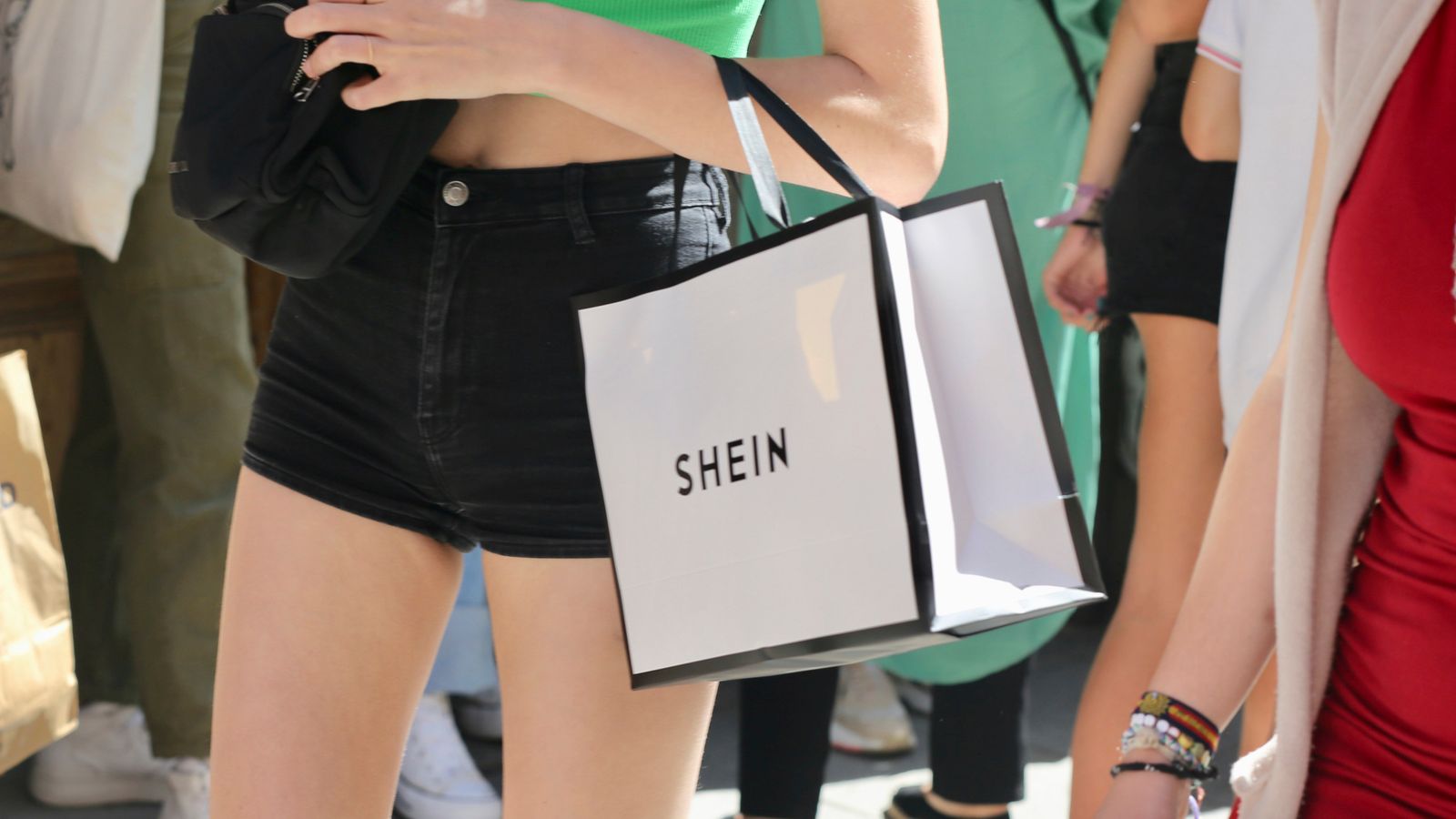Chinese fast fashion giant Shein appears to be heading to London, not New York, for its planned IPO.
On the face of it, this would be a huge success for London, especially given last year’s reassessment of its attractiveness following the onslaught of major British and Irish companies. moved their main listing on the stock exchange to New York.
Money Blog: Rolex Raises Prices – Here’s How Much It Will Cost You
There will undoubtedly be a degree of cynicism Schein’s roster decision in London, not New York. It will be suggested, for example, that British regulators – and politicians – are less hostile to China than their American counterparts and are less likely to ask hard questions about the company’s supply chain.
That Jeremy Huntchancellor, she met with Donald Tang, chief executive of Shein, to make the case that London would only add to that sense.
Some might compare it to how the Financial Conduct Authority launched a consultation on a possible change to the UK’s listing rules back in 2017, when it was hoped that state oil giant Saudi Aramco could be persuaded to choose London as the destination for its secondary listing .
On that occasion FCA faced heavy criticism from British asset managers and no doubt the same would have happened if there had been any sense that Shein was getting special treatment.
A difficult control is ahead
Shein’s activities, including its supply chain, would also come under heavy scrutiny if it were to go public in the UK.
A group of leading fund managers has reportedly cooled on backing the float, while the UK Sustainable Investment and Finance Association (UKSIF), the membership organization for sustainable and responsible finance in the UK, told the Mail on Sunday last month it did not want London to become «the last refuge for companies with poor human rights records».
For his part, Shein takes the concerns of British politicians and regulators seriously. As Sky’s Mark Kleinman reported, as well as the Chancellor, Mr Tang met with a number of leaders Work politicians, including Jonathan Reynolds, the shadow business secretary, in recent months.
Tough on Chinese business?
And anyone who thinks the UK is a soft touch for Chinese companies should ask Huawei, the telecommunications equipment maker UK 5G rollout bannedwhat does he think about it.
There is no doubt, however, that London would be a more hospitable environment for Shein than New York.
This is largely a reflection of the fact that the US is now a positively hostile environment for Chinese companies.
Back in May 2020, the US Congress passed legislation – written by both Republican and Democratic senators – that gave the Securities and Exchange Commission (SEC), the main financial regulator in the US, the power to remove Chinese companies from US stock market if US regulators were not allowed to review the audits of such companies for three consecutive years.
China eventually, two years later, asked for accommodation with the law.
By then, however, another painful episode occurred that poisoned the minds of American investors toward Chinese companies.
In July 2021, Wall Street had spread the red carpet for Didi Global, a ride-hailing app often described as China’s version of Uber, in the largest U.S. initial public offering by a Chinese company since Alibaba seven years earlier.
Just days later, China launched a break its technology sectorwhich caused shares of Chinese technology companies to fall.
The most damage was done on the stock exchanges in Shanghai and Hong Kong, but in New York Didi Global shares fell to 42% below the company’s IPO price. Didi Global was delisted from the New York Stock Exchange the following June.
Beware of New York
With that background, it’s understandable why Shein — whose annual profits are set to more than double to more than $2 billion in 2023 — should be wary of listing on the New York Stock Exchange.
The Biden administration has been no less tough on China than the Trump administration was before — as shown by the president’s recent threat to ban TikTok in the US unless its Chinese parent, ByteDance, sells the business within a year.
Mr. Tang, an American citizen who moved from Los Angeles to Washington last year to lobby Shein more effectively, will also know that listing in New York could anger the authorities in Beijing.
The US has banned imports from Xinjiang province, where authorities have been accused of repression Uighur ethnic groups and the use of forced labor, which China denies.
More transparency?
But a U.S. listing could force Shein to provide details about its supply chain, and in particular, provide evidence that it does not use cotton from Xinjiang – something that, if revealed publicly, would not go down well with Beijing.
Not that London would necessarily be any less demanding in terms of the revelations required of Shein. The company already publishes, in accordance with the UK Modern Slavery Act, a modern slavery statement on its UK website outlining its expectations of labor practices among its suppliers and manufacturers.
But British politicians want more than that.
The three select committee chairs – Liam Byrne from the business committee, Alicia Kearns from the foreign affairs committee and Sarah Champion from the international development committee – said the IPO should not go ahead while parliament is dissolved.
Why London is more attractive
There are, however, some very positive reasons why listing on the London Shein would be more attractive than New York.
Europe is already home to two of the world’s largest listed fashion retailers – Madrid-listed Zara parent company Inditex, which is valued at €135bn (£115bn) and Stockholm-listed H&M, which has a market value of SKr263bn (£20 billion). ), and both are the types of companies Shein would consider equal.
As Europe’s largest stock exchange, the UK would be an obvious listing destination for Shein under the circumstances. London is also home to two online fashion retailers – Asos, valued at £445m and Boohoo, valued at £444m – whose business models are similar to Shein’s. A Chinese company could therefore list in London knowing that the analyst community has a reasonable understanding of a business like its own.
Is it worth the risk?
Perhaps the bigger question, given the questions that refuse to go away about Shein’s business practices, is whether hosting the company is worth the risk for London.
Other European countries would also like to see Shea leaf in their market.
Paris, despite France recently introducing a law to punish sellers of one-off fashion, lobbied for Shein to be there on the list.
That’s another reason why Mr. Hunt clearly thinks Shea’s IPO is a prize worth chasing here.
At the end of the day, however, it will be UK asset managers who make that judgement.



